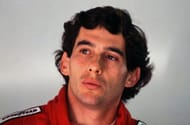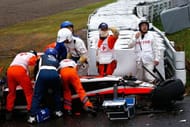Ayrton Senna - When you hear or read the name it reminds us that the Brazilian F1 legend had an incredible career in motorsport which was sadly ended by a life-ending crash at the 1994 San Marino Grand Prix.
At just 34 years old - the Williams man, at the time, had three world championships to his name along with 41 Grand Prix wins.
Senna was an unbeatable racer until May 1, 1994, when the Brazilian was out on the Autodromo Enzo e Dino Ferrari circuit during Sunday's race.
Senna's career in numbers
Teams - 4 (Toleman, Lotus, McLaren, Williams)
Races - 162
Championships - 3 (1988, 1990, 1991)
Race wins - 41
Podiums - 80
Career points - 610
Pole positions - 65
Fastest laps - 19

He had sealed a 65th and final pole position earlier that weekend for Williams in the FW16.
Senna was leading the race in Sunday's showdown in Imola up until the 7th lap when he approached the Tamburello corner very fast just moments before he lost control of his Williams and then struck the wall.
The FW16 was in pieces with Senna hardly moving in his cockpit.
The speed Senna hit the concrete wall was at 191 mph. Within two minutes of the accident, the medical team approached the smashed up car and reported later on that Senna's brain had stopped working moments after the crash.
This also included significant blood loss (around 4.5 litres) and a very weak heartbeat before Senna was airlifted to hospital.
At 18:40 that night, Maggiore Hospital announced one of the most tragic stories in the history of Formula One - Senna's death.
By Italian law Senna had passed away at 14:17 which was when he hit the wall and his brain had stopped working.
It was Michael Schumacher who went on to win the race in Imola which would see the German win his first of seven world championships later that year for Benetton.
This sad event marked the second death of the Grand Prix weekend as Roland Ratzenberger died the day before after being involved in a crash during qualifying.
Since the events of that weekend, F1 would never be the same again.
Gone of the days of racers dying doing what they love and never too sure if they would ever be back with their families once they head out on the track.
Health and safety certainly changed F1 for the greater good as the death ratio in the racing series went down dramatically.
Jules Bianchi is the most recent death in the sport after the Frenchman collided with a recovery vehicle at the 2014 Japanese Grand Prix.


In a weird way of writing this, Ayrton Senna's crash changed F1 for the greater good.
A racing series losing one of it's best drivers certainly was a sign to the people in charge, including Bernie Ecclestone, that a change was needed.
Senna's racing career will always be celebrated and always be remembered for the sheer joy he brought to Brazil - inspiring many future generations including the likes of Lewis Hamilton and Felipe Massa.
Arguably the greatest driver of all time.
Follow Sportskeeda for the latest F1 News, Calendar, Results, Standings, and Schedule.
